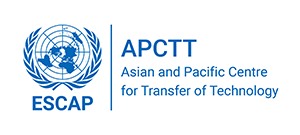A Multi Walled Carbon Nanotubes (MWCNTS) Based Gas /Vapor Sensor Systems and a Process for the Preparation thereof.
The present invention relates to a process for depositing thin films of carbon nanotubes and their functionalization. More particularly, the present invention provides a process for depositing self-assembled thin films of multi-walled carbon nanotubes by using electrostatic charging technique. The testing of these films has been performed for detection of alcohol and chemical/gas vapours with high sensitivity and high reproducibility. The detections are based on the changes in conductance of the sensors. These developed sensors showed recovery in less than two minutes for alcohol vapours, few hours for ammonia vapours, and a day for nitrogen dioxide vapours. The corona based electrostatic self-assembly (CESA) pattering technique for batch fabrication of the sensors is fast, simple, low-cost and does not require much specialized equipment, and offers many technical advantages such as the capability to deposit on almost any substrate, including plastics, irregularly-shaped and (or) very large substrates, can be performed at room temperature, and self-functionalized for specific molecule detection. All these characteristics make the CESA-CNTs alcohol sensors very appealing for commercial applications.
Sector: Other Technologies n.e.c.
Country: India
Area of Application: 1.Gas sensing applications. 2.Chemical sensing in the form of vapours. 3.Pressure Sensors. 4.Diagnostic tool in bio medical application.
Keywords: <gas/vapour sensor><multiwalled carbon nanotube><CNT based gas sensor>
Advantages: 1.Room temperature operation. 2.High-responsae and recovery time. 3.Self-functionalized films. 4.Easy to fabricate. 5.Low cost equipment. 6.Has capability to deposit on almost any substrate, including plastics, irregularly-shaped and (or) very large substrate. 7.Possess several months of re-usability and stability.
Environmental aspects: Security Purpose
Development Status: Laboratory Model
Legal Protection: Patent
Technical specifications: Develops a process for funtionalizing thin films of multiwalled carbon nanotubes by using electrostatic charging technique.Testing is based on the changes in conductance of the sensors.
Transfer Terms: Consultancy , Technical Services , Technology Licensing , Research Partnerships
Target Countries: World Wide
Estimated cost (US$):
Upload any relevant document:
Contact Person: NA
Address: Amity University Uttar Pradesh Sector-125, Noida
City: Distt Gautam Buddha Nagar
Country: India
Zip/Pin Code: 201303

